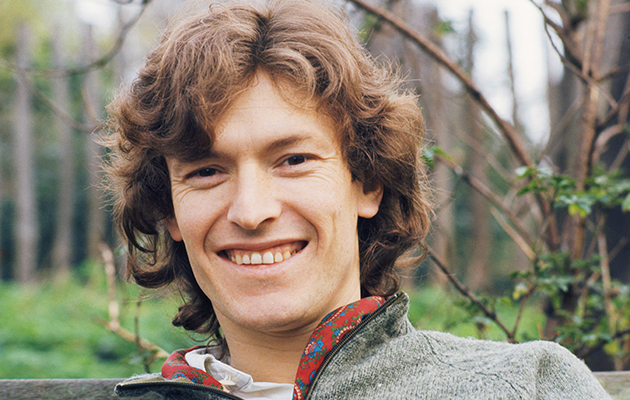When Uncut meets Steve Winwood in his central London hotel room, he’s just come off a 4am start appearing with his daughter Lily on Chris Evans’ Radio 2 breakfast show, alongside Alice Cooper and Rita Ora. Winwood and his daughter performed “Higher Love”, before he switched to acoustic guitar for a masterful version of Blind Faith’s “Can’t Find My Way Home”, and a folky take on 1986’s “Back In The High Life Again”. Then he had to fight his way through autograph hunters outside Broadcasting House (“mostly eBayers… you can just tell,” he muses), back to the quiet of his hotel room. “It’s not an easy gig, with all those people crammed in that little room,” he says, “And I don’t normally do things with just me on guitar, though I should start doing more maybe. The main, important part of the band I have now is Hammond organ, but I couldn’t fit that in the studio.”
While many of his collaborators are no longer with us, Winwood remains lean, boyish and surprisingly well-adjusted for a globally renowned 69-year-old musician; so much so, Uncut can’t help but comment on his down-to-earth nature. “Compared to Viv Stanshall or Ginger Baker?” he laughs. “That’s hardly rational! Compared to Keith Moon or someone? Well, I came into music from a slightly different angle. I was just purely about what was going on musically, and how that affected the senses. That’s the only thing that’s worked for me. There was a lifestyle as well, and some people fall victim to that.”
Flouting the hotel’s check-out time is Winwood’s only concession to the rock’n’roll lifestyle during our meeting. He’s always shunned raising hell, preferring to work his farm in Gloucestershire when he’s not touring or at his second home in Nashville. “The Cotswolds is beautiful,” he explains, “but it’s not great farmland like Lincolnshire – it’s really sheep country. So we have sheep, and we grow wheat and barley and oil seed rape, and plant trees. I like to be involved with what’s going on, I do enjoy it.”
Like any self-respecting rock farmer, Winwood also has a studio and a full live space on his land, where he and his band rehearse. Far from being a country boy, though, he was brought up in the suburbs of Birmingham to a family more likely to be producing music than silage.
“I started off playing ’30s and ’40s dance music with my dad and my brother,” he says. “Then I started to discover skiffle, bebop and R&B. It was an odd mix – I was subconsciously trying to see how skiffle would work with Horace Silver, trying to put it all together.
“My brother [Muff Winwood, producer and musician] and I didn’t have a record player, but what we did have was an uncle who would make all this hi-fi kit, so we’d have his cast-offs. We had a quarter-inch reel-to-reel tape machine in 1962, so we used to record off the radio – things like Willis Conover’s Voice Of America Jazz Hour, broadcasting in Germany to the American forces.”
In 1963, Winwood’s impressive voice – a raw yet controlled holler, something like a young Ray Charles – earned him a spot with The Spencer Davis Group, also featuring Winwood’s brother. In 1965, they hit No 1 with “Keep On Running”, while the following year’s “Somebody Help Me” followed it to the top position. By early 1967, they had scored hits with Winwood co-writes “Gimme Some Lovin’” and “I’m A Man”. The latter opens Greatest Hits Live, with Winwood and his group adding funk and ska vibes to the original’s garagey R&B.
“I do feel a connection to those songs,” says Winwood. “We’re not just going through the motions. ‘I’m A Man’ has also got the jazz organ trio thing going on, somewhere in there, with the Caribbean sound. It’s nice to add all those different flavours.”
“His way is very musical,” says José Neto. “He listens to a large range, and he’s very open to all of that. It’s quite an experience to work with someone who is not really restrained to one particular style. I first met him in 1995, and he’s been the same since. I think probably he was always the same.”
In 1967, The Spencer Davis Group splintered as the Beat boom turned into the Summer Of Love and Winwood’s musical tastes exploded out into more global and psychedelic realms. “We were very lucky, I think, that we were [playing] at a time when the world was changing. In ’64, it was like the eggshell was just starting to crack, it wasn’t all out in the open yet.
“After I moved to London in 1965, I used to hook up with Eric Clapton, who I’d met a few times out on the road. He used to take me down to his Soho flat with his bohemian friends, we’d listen to records, play a bit of music. So I had a glimpse of that bohemian Soho style.”



